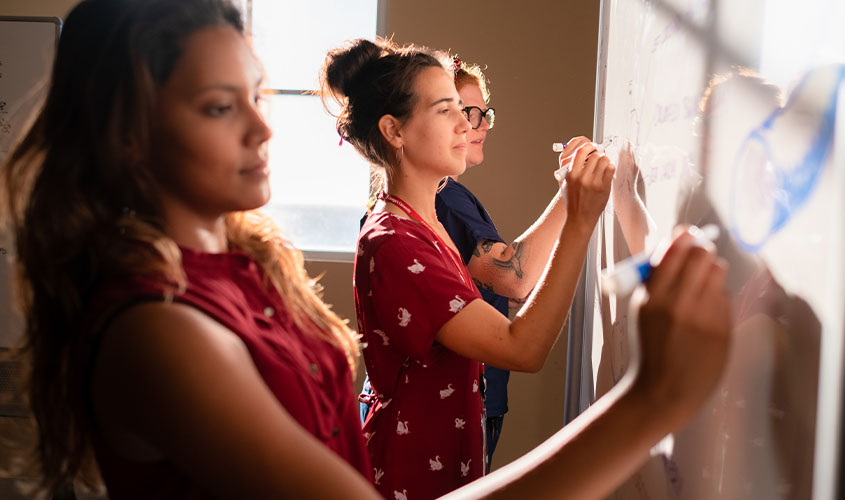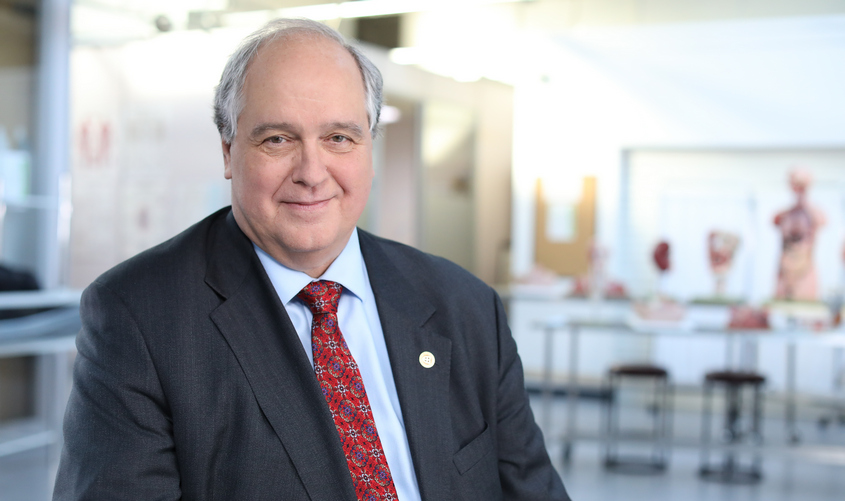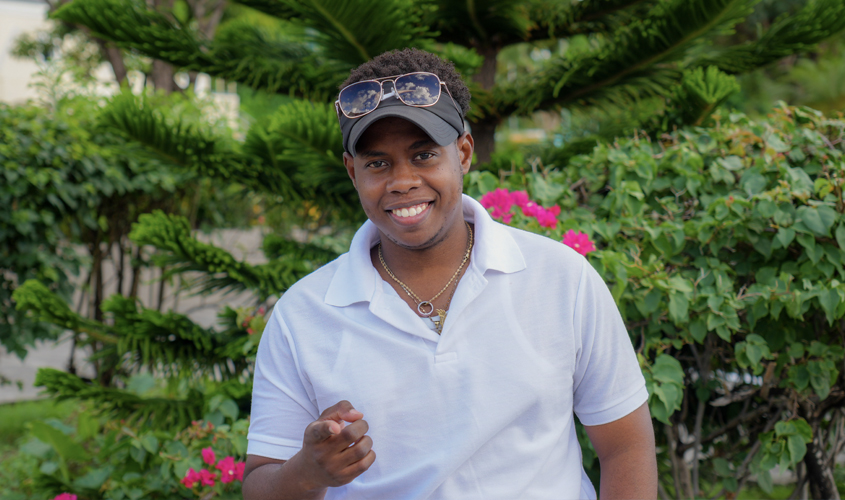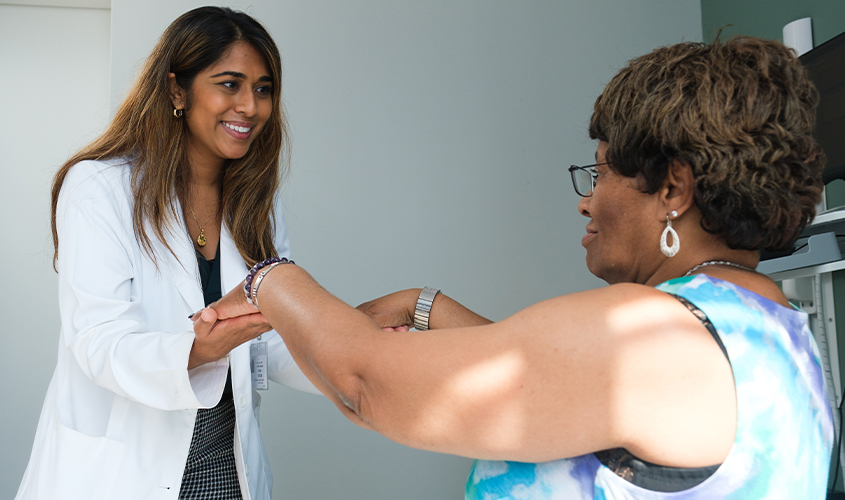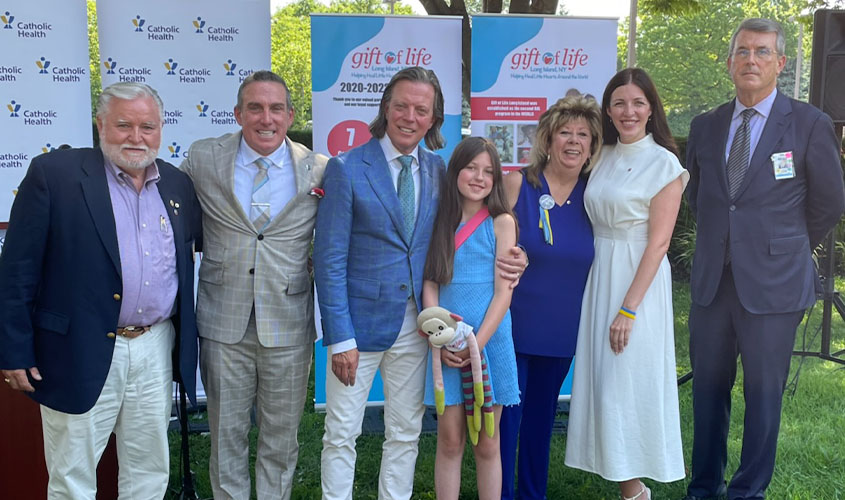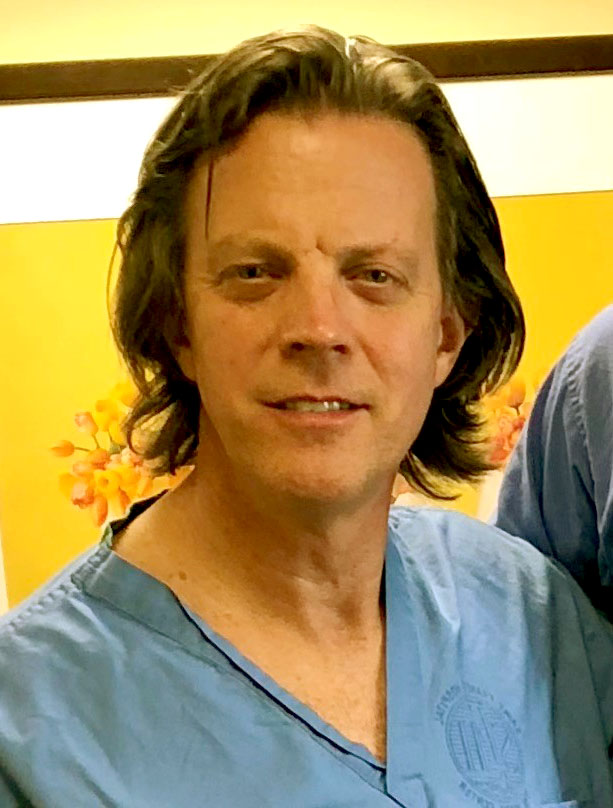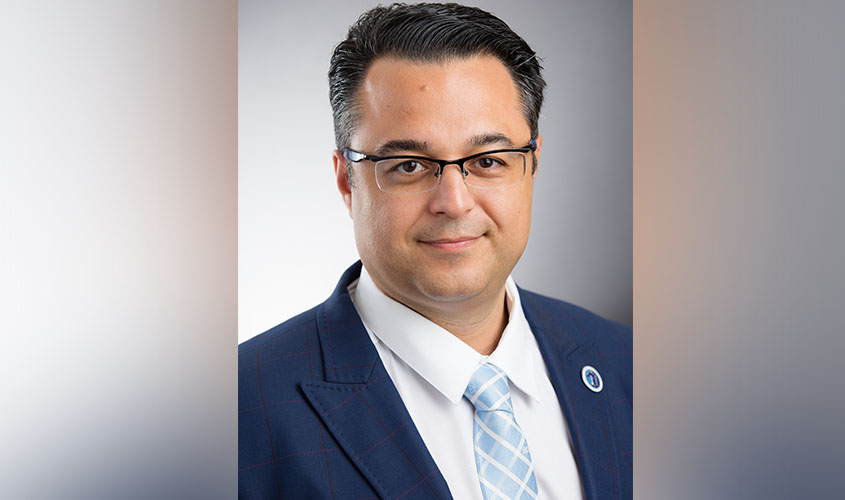Class of 2023 Encouraged Toward a Life of Integrity and Service
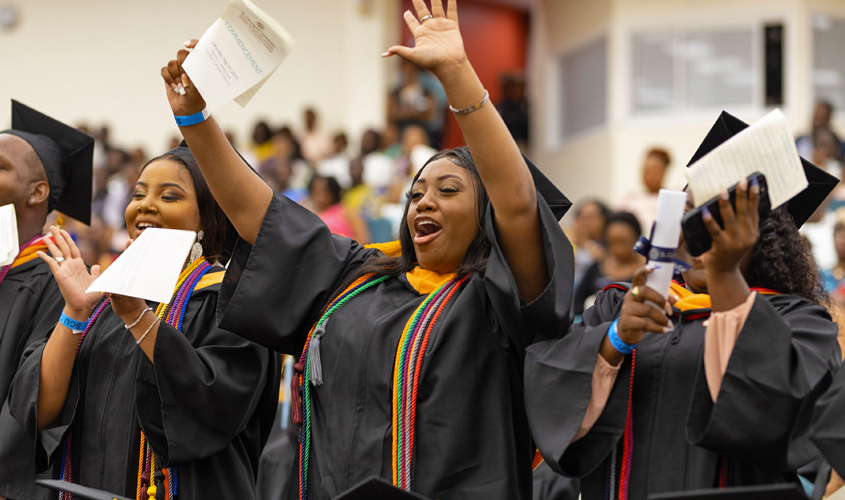
Although the morning rain showers threatened to spoil the day, the St. George’s University Schools of Arts and Sciences, and Graduate Studies Class of 2023 beamed with pride and gratitude. The sun shone brightly on the True Blue campus as they received their degrees on Saturday, May 20 at the Grenada Commencement Ceremony.
Both a faculty member and a student at SGU, this year’s SGS class speaker Rachqueda Salfarlie wasn’t the only one in her family graduating that day. She shared this special milestone with her siblings, Neisha and Marvin Salfarlie, graduating with a Master of Education in curriculum pedagogy and leadership and a Bachelor of Science in management, respectively.

Neisha Salfarlie (left), Rachqueda Salfarlie (middle), and Marvin Salfarlie (right)
“This day is meaningful because I get to share it with my family,” said Ms. Salfarlie, who graduated with her third degree from SGU, a Master of Education in curriculum, pedagogy, and leadership. “My son, Xavier, will see me graduate for the first time. My siblings, Neisha and Marvin Salfarlie are also graduating here today. I am so happy that my parents, partner, and other siblings are in the audience to share in my joy.”
Joining Ms. Salfarlie as a commencement speaker was SAS valedictorian Tamara Marryshow. Ms. Marryshow completed her Bachelor of Science in business and accounting with a perfect 4.0 GPA and is currently employed by a company that recently appointed her to the position of business director. Being the first to achieve a college degree in her family is what Ms. Marryshow considers her greatest achievement—one that is as much her family’s as hers.
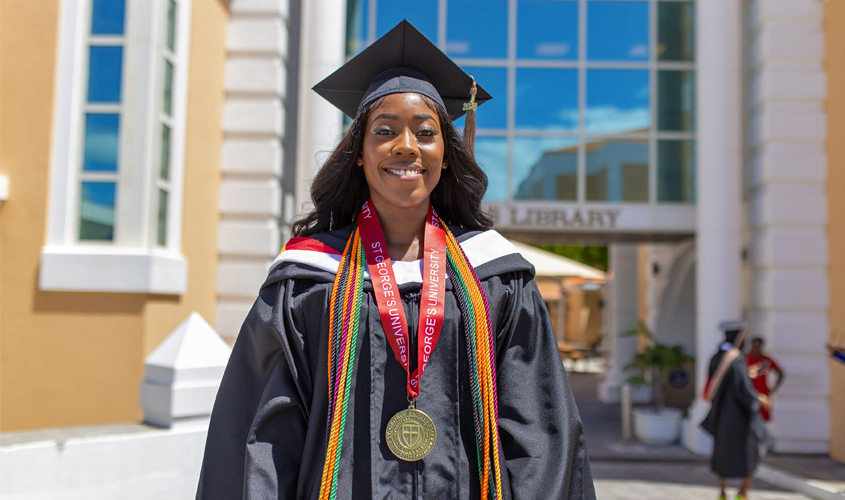
“I urge you always to take a moment to reflect on your successes, whether big or small,” Ms. Marryshow encouraged her fellow graduands. “For after looking back on all you’ve accomplished, how can you not be inspired to move forward? Today, we are celebrating because this academic journey has adequately prepared us for our next big milestone, one that will be more challenging but equally rewarding.”
Echoing the valedictorian’s sentiments was Professor, The Most Honorable Violet Eudine Barriteau, who addressed the more than 200 graduates from 34 countries in a keynote speech that was both poignant and topical as it focused on the theme of creating an exceptional professional life defined by service and integrity.
Professor Barriteau, a Grenadian-born Caribbean feminist scholar and activist, has a distinguished record of accomplishments and is a pioneer in women’s educational leadership. She is the first woman appointed pro-vice chancellor at The University of the West Indies (UWI) Cave Hill Campus and the first to become principal of two campuses at The UWI.
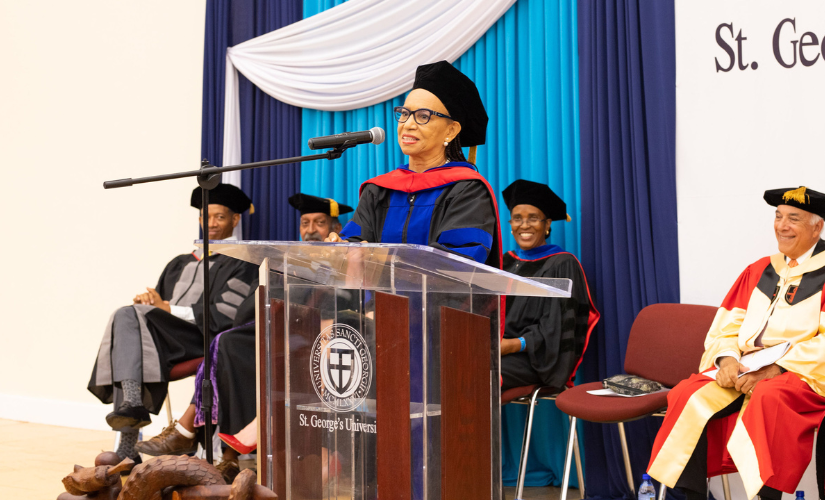
“On this glorious morning, as you embrace your future, wherever you go in life, always operate with these principles,” counseled Professor Barriteau. “The mutuality of respect, the reciprocity of accountability, the imperative of social justice, of course inclusive of gender justice, and a dedication to integrity and service. Go forth and conquer Grenada and the region. I congratulate you!”
Ceremonies for the Schools of Medicine and Veterinary Medicine will take place at Arthur Ashe Stadium in New York on June 3-4.
– Ray-Donna Peters
Related Reading
- SAS alumna becomes Grenada’s youngest elected minister
- A shared resilience: SAS, SGS Class of 2022 celebrates at Grenada Commencement Ceremony
- SAS alumna finds new purpose in life
